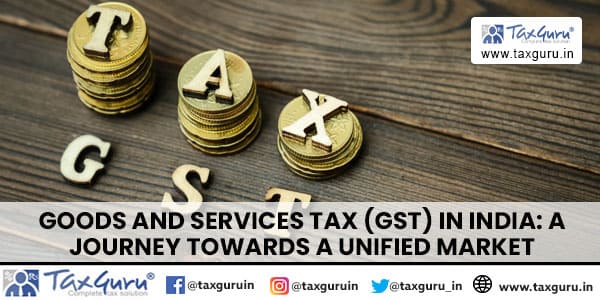Case Law Details
Case Name : Association of Unified Tele Services Vs Union of India (Supreme Court of India)
Appeal Number : Civil Appeal no. 4591 of 2014
Date of Judgement/Order : 17/04/2014
Related Assessment Year :
Courts :
Supreme Court of India
CA Sandeep Kanoi
The Supreme Court has held in the case of ASSO.OF UNIFIED TELE.SERV.PROV.& ORS. Vs. UNION OF INDIA & ORS. in CIVIL APPEAL NO. 4591 OF 2014, Date of Decision 17.04.2014 that Pvt firms including telecom Companies come in CAG ambit. The order has virtually brought all private companies using natural resources on the basis of revenue-sharing arrangement with government within the scrutiny of CAG as it allowed the official auditor to go into the accounts of telecom firms.
The Supreme court held that CAG audit of such private companies is necessary to ensure that there is no unlawful loss to government as there has been instances where the Executive “acts hand in glove” with companies for their benefits.
Kindly Refer to
Privacy Policy &
Complete Terms of Use and Disclaimer.






















SCAMS ARE AVOIDABLE !
Early this week , Supreme Court held that , CAG ( Comptroller and Auditor General ) has the right – and obligation – to conduct an audit of telecoms
WHY ?
> Spectrum is a natural resource that belongs to the nation
> Private telecom companies have a revenue-sharing agreement with the
Central Government , for allowing them to ” exploit ” this natural
– and national – resource
WHAT ELSE ?
> This logic should also hold good for all private companies , who are
allowed to exploit India’s NATURAL / NATIONAL resources , to create
materials / energy
Here is a partial list :
* Fossil Fuels ( Oil / Gas / Coal )
* Minerals
* Sea-bed Nodules
* River Waters
* Wind
* Tides
* Sunlight
* Sea Water
* Jungles / Trees
* Earth’s Magnetism
* Electromagnetic Waves
* Gravitational Force…..etc
HOW ?
* Tendering process must be public / transparent / equitable
* Tender terms must be open for scrutiny/comment by public
* All resource-exploitation licenses must follow auction route
* Eligibility Criteria must be pre-defined / publicized in advance
* Licenses should be valid for pre-defined fixed period
* Licenses cannot be renewed / extended
* Concerned States must have a share in profit-sharing etc
* Profit – sharing formula must be part of tenders
* Any failure / delay on part of the Licensee Company to implement the
Contract , will require return / surrender of the natural resource
concerned , to the Central Government, with appropriate penalties
* Natural Resource involved , cannot be hypothecated to banks / financial
institutions to raise loans
* Shares of the licensee companies cannot be traded in open market or
pledged , without prior permission from Central Government
* CAG Audit will be mandatory and reports must be published
* Tendering / Auctioning / Licensing must not be handled by any Govt
Department . A separate statutory authority should be created for this
* To encourage early / fast implementations of Exploitation Licenses , there
will be no Corporate Income Tax for the Licensee Companies
* Each license will be given only to a SPV , created for this purpose
* Cost-escalation leading to any Selling Price Escalations would be pre-
defined
IN HIND-SIGHT
* Had we followed the above-mentioned process , perhaps , we could have
avoided several scams of recent past and KG-D6 type disputes
* We could have also avoided ,
# Arbitrary price escalations
# Inflation
# Private profiteering
# Costly litigations
# Policy and Decision Paralysis
* hemen parekh ( 21 April 2014 / Mumbai )
I welcome the finding that CAG is entitled to conduct audit in all Public Private Partnership projects. But I find the branding of Article 149 as a basic structure, quiet a overreach. Admittedly, I am not supporter of the “basic structure doctrine”, as it gives the power to the Supreme Court to differentiate between the provisions of the constitution into that of ‘essential nature’ and of ‘not that essential’ nature, which it never had if not for the BUT doctrine in the Khanna’s casting verdict in Kesavananda Bharathi. The constitution drafters did not differentiate the constitutional provisions as to its essential elements then why such powers be given to the SC ?
Further, I believe the above judgment has gone beyond the vires of the SC under article 145(3), wherein it stipulates that a substantial question of law involving constitutional law should be dealt by a minimum quorum of five judges. Is not branding a provision as “basic structure” a substantial question of law involving constitutional law ? John Marshall (“the Great Chief Justice” of US) once said: “Never seek to enlarge judicial power beyond its proper boundary, nor fear to carry it, to the fullest extent that duty requires.” The upholding of the power of CAG to audit Public-private partnerships answers the the second limb of the quote, but the bestowing of ‘basic structure immunity’ to Article 149 causes mischief to the fist limb.